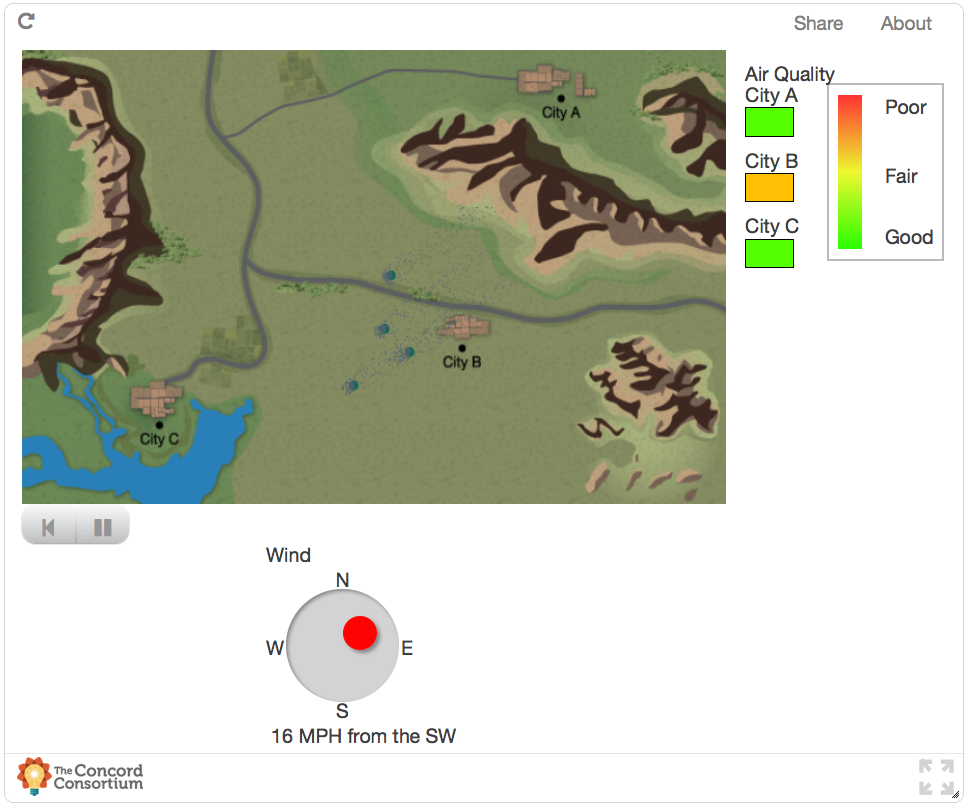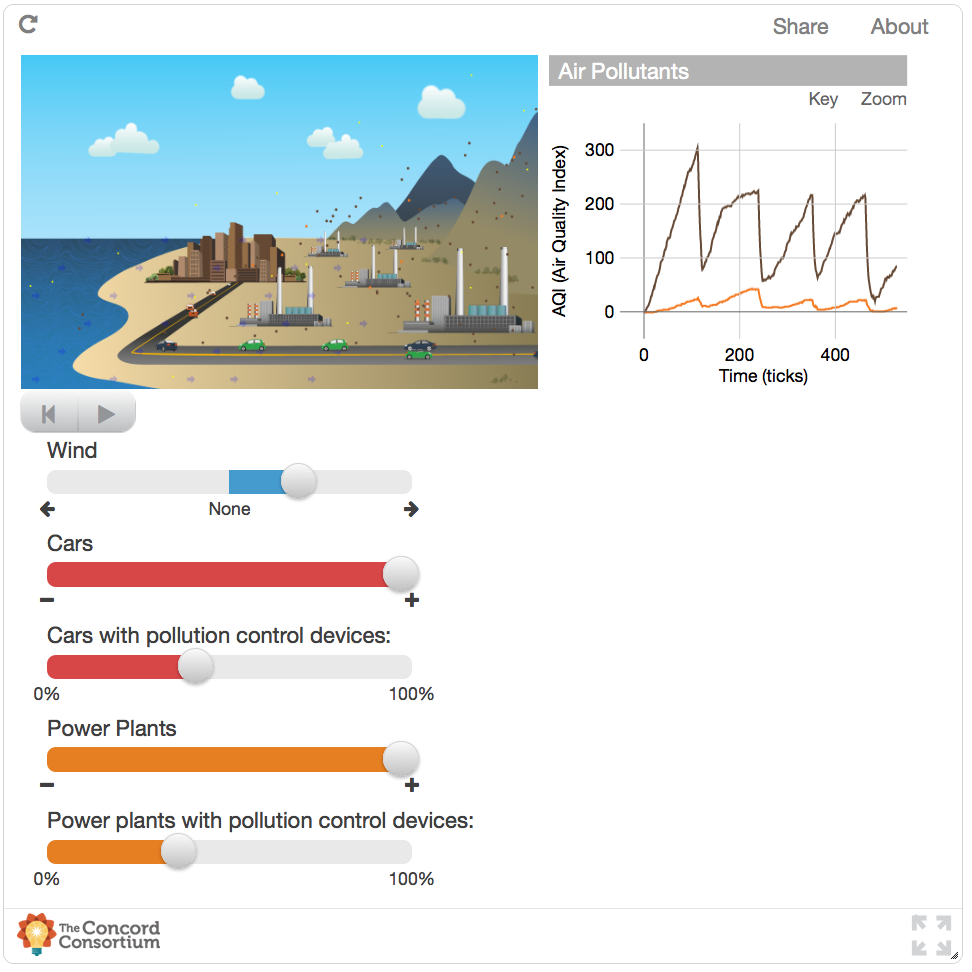The Concord Consortium is proud to announce a new project funded by the National Science Foundation, “Towards virtual worlds that afford knowledge integration across project challenges and disciplines.” Principal Investigator Janet Kolodner and Co-PI Amy Pallant will explore how the design of project challenges and the contexts in which they are carried out can support knowledge integration, sustained engagement, and excitement. The goal is to learn how to foster knowledge integration across disciplines when learners encounter and revisit phenomena and processes across several challenges.
 In this model, students explore the effect of wind direction and geography on air quality as they place up to four smokestacks in the model.
In this model, students explore the effect of wind direction and geography on air quality as they place up to four smokestacks in the model.We envision an educational system where learners regularly engage in project-based education within and across disciplines, and in and out of school. We believe that, with such an educational approach, making connections across learning experiences should be possible in new and unexplored ways. If challenges are framed appropriately and their associated figured worlds (real and virtual) and scaffolding are designed to afford it, such education can help learners integrate the content and practices they are learning across projects and across disciplines. “Towards virtual worlds” will help move us towards this vision.
This one-year exploratory project focuses on the possibilities for knowledge integration when middle schoolers who have achieved water ecosystems challenges later attempt an air quality challenge. Some students will engage with EcoMUVE, where learners try to understand why the fish in a pond are dying, and others will engage with Living Together from Project-Based Inquiry Science (PBIS), where learners advise about regulations that should be put in place before a new industry is allowed to move into a town. A subset of these students will then encounter specially crafted air quality challenges based on High-Adventure Science activities and models. These, we hope, will evoke reminders of experiences during their water ecosystem work. We will examine what learners are reminded of, the richness of their memories, and the appeal for learners of applying what they are learning about air quality to better address the earlier water ecology challenge. Research will be carried out in Boston area schools.

In this model, students explore the effects of installing pollution control devices, such as scrubbers and catalytic converters, on power plants and cars. Students monitor the level of primary pollutants (brown line) and secondary pollutants (orange line) in the model over time, via the graph.
The project will investigate:
- What conditions give rise to intense and sustained emotional engagement?
- What is remembered by learners when they have (enthusiastically) engaged with a challenge in a virtual figured world and reflected on it in ways appropriate to learning, and what seems to affect what is remembered?
- How does a challenge and/or virtual world need to be configured so that learners notice—while not being overwhelmed by—phenomena not central to the challenge but still important to making connections with content outside the challenge content?
Our exploration will help us understand more about the actual elements in the experiences of learners that lead to different emotional responses and the impacts of such responses on their memory making and desires.
Lessons we learn about conditions under which learners form rich memories and want to go back and improve their earlier solutions to challenges will form some of the foundations informing how to design virtual worlds and project challenges with affordances for supporting knowledge integration across projects and disciplines. Exemplar virtual worlds and associated project challenges will inform design principles for the design and use of a new virtual world genre — one with characteristics that anticipate cross-project and cross-discipline knowledge integration and ready learners for future connection making and knowledge deepening.